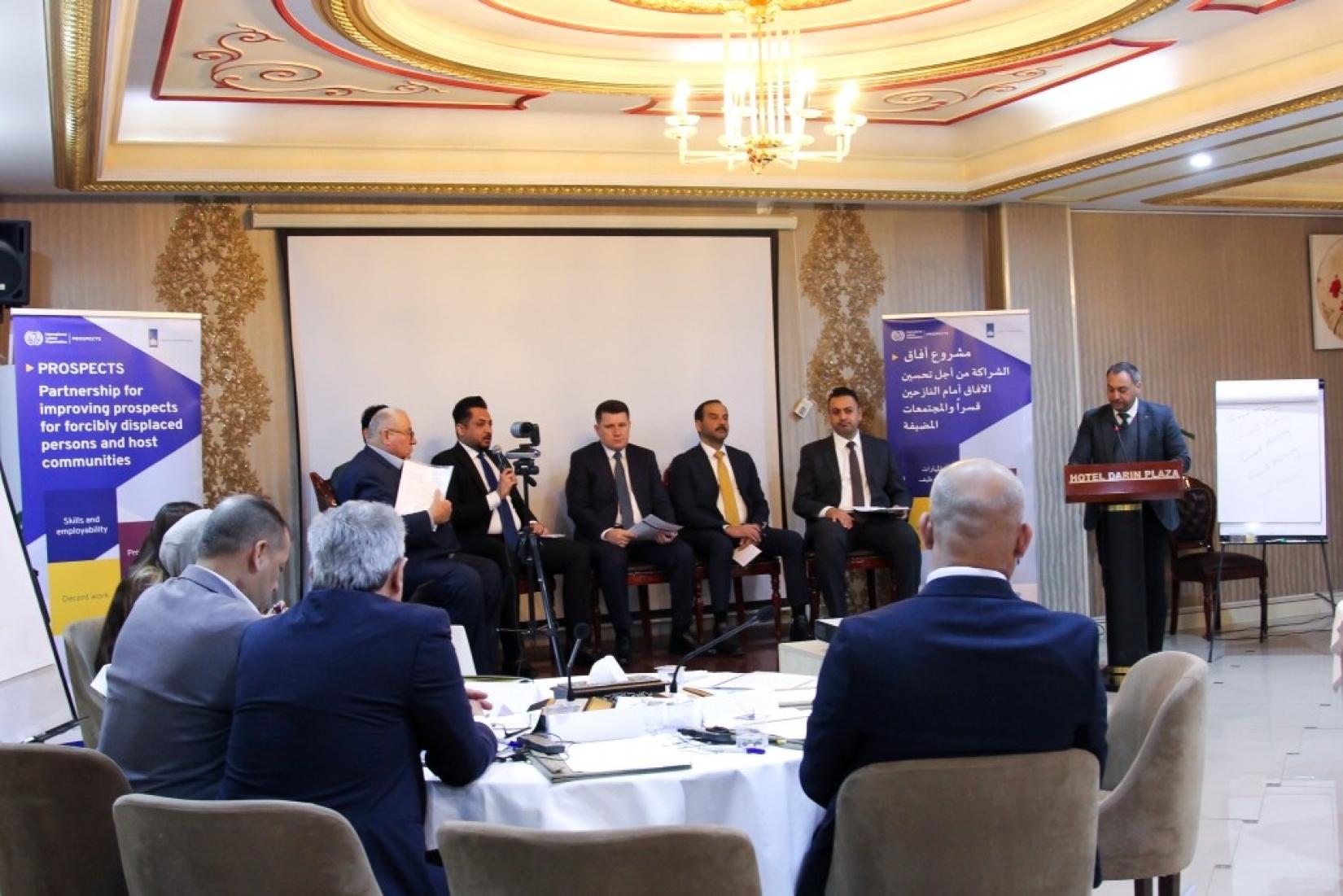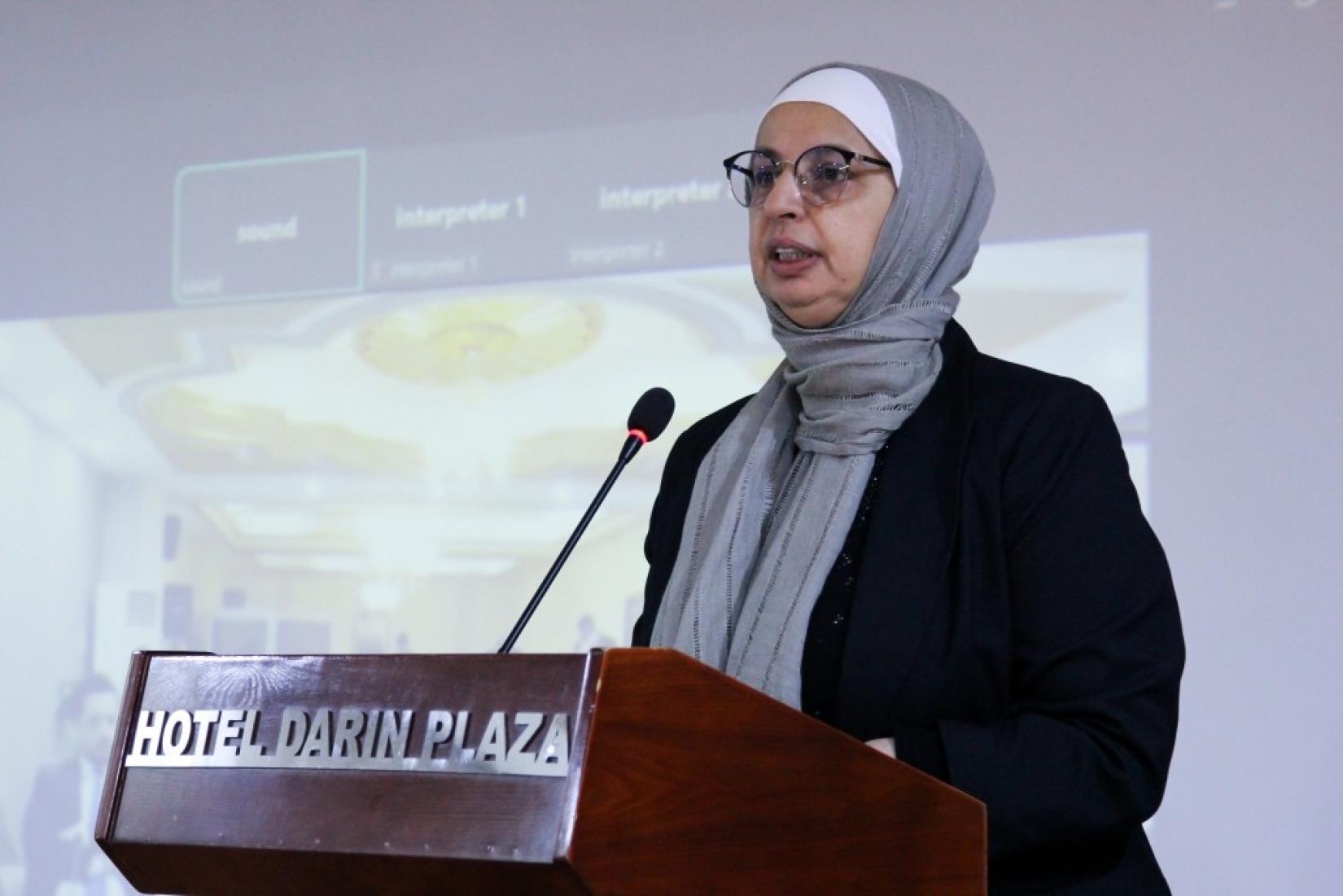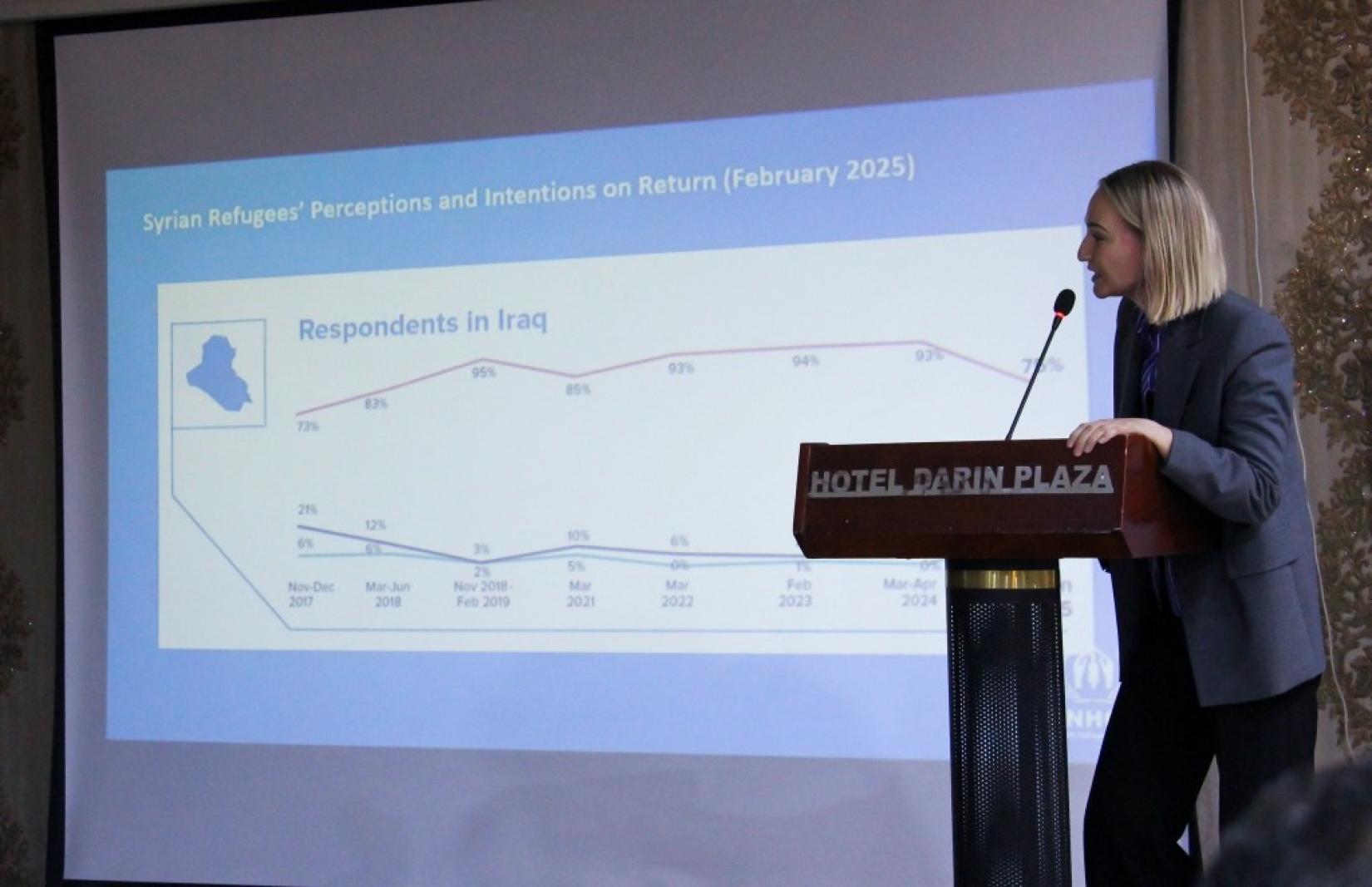Workshop to Develop a Policy Paper on Iraq’s Position Regarding the Return of Syrian Refugees and Its Impact on the Labour Market
19 February 2025
Erbil, 18 February 2025 (ILO News)
The International Labour Organization (ILO) in Iraq, through the PROSPECTS Partnership funded by the Government of the Netherlands, organized a workshop to examine the anticipated return of Syrian refugees and its impact on the Iraqi labour market. This event was organized in direct coordination and collaboration with several relevant ministries, including the Ministry of Labour and Social Affairs, the Ministry of Migration and Displacement, the Ministry of Planning, and the Ministry of Labour and Social Affairs in the Kurdistan Region of Iraq, in addition to the participation of representatives from workers' and employers' organizations.

Given the evolving political developments in Syria and the expected return of refugees from Iraq and other countries in the region in the medium to long term, Iraq’s labour market faces both challenges and opportunities. Syrian workers have played a critical role in key sectors such as construction and services, and their departure may impact labour supply dynamics. The ILO underscored the need for a coordinated response to maintain labour market stability, protect vulnerable populations, and create new economic opportunities for both returning refugees and the local workforce.

Dr. Maha Kattaa ILO country coordinator stated that “the return of Syrian workers will have significant labour market implications. A well-coordinated approach is essential to mitigate disruptions, protect workers’ rights, and create inclusive economic opportunities. By strengthening labour market policies, enhancing skills development programmes, and fostering social dialogue, we can support both returnees and host communities in building a more resilient workforce.”
Mr. Marwan Azeez, Director General of the Labour and Social Security Department in the Kurdistan Region, emphasized the importance of this workshop as a platform to exchange views on the potential return of Syrian refugees and its impact on the labour market. The United Nations High Commissioner for Refugees (UNHCR) provided insights into Syrian refugees' perceptions and intentions regarding their return, while the ILO shared findings from a survey assessing the economic implications of Syrian refugees’ return from Iraq.

Discussions centred on the sectors most affected by the return of refugees, key labour market challenges, and potential mitigation measures. Participants emphasized the importance of conducting an accurate census of Syrian workers and business owners, classifying their occupations to support skills development and training initiatives for Iraqi workers, and ensuring that refugee returns are voluntary and do not disrupt the labour market. Furthermore, they underscored the need to enhance data collection and categorization on Syrian refugees, as well as the importance of a safe and organized return process. Calls were made for strengthened cooperation between relevant federal and regional ministries to address legal challenges related to residency and return.
The outcomes of the workshop will be presented at the forthcoming regional conference on refugee return. This multi-stakeholder initiative reinforced the critical role of government in labour market regulation, emphasized the value of tripartite engagement, and sought to formulate actionable recommendations for ensuring a smooth reintegration process for returning refugees while fostering labour market resilience.



